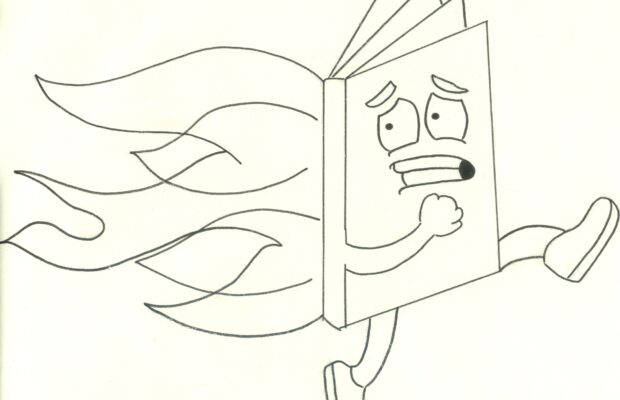Book banning damages students

“Charlotte’s Web,” “Animal Farm,” “The Giver,” “The Outsiders” and “Harry Potter,” are all books that have made enormous impacts on my life. Their messages have molded me into the person that I am today. They have taught me friendship. They have taught me tragedy. They have changed my perspective on the world around me. They are all banned.
It seems part of human nature to shun something when it is hard, scary or ugly. From our very core, we have an intense need to run away from what makes us uncomfortable. If something does not adhere to what we agree with, it is easiest to criticize and alienate it, instead of even partially embracing the new perspective. However, censoring these integral parts of our society does not make them go away, and it ultimately does not prepare children for what they will face upon adulthood.
Books are often the prime victim of this human instinct. This was seen in Germany in 1933 when thousands of books were burned by the Nazi party because the ideas they presented differed from those of their leaders. This is still seen today, albeit on a smaller scale, when books are removed from school libraries because they propose topics that some may consider unnecessarily difficult and inappropriate.
There are a plethora of reasons that books are banned; one of the most prominent being that they showcase LGBTQIA+ characters and themes. Those who argue against the books in question often claim that they do not want their children “exposed” to the community. I argue that taking such novels out of reach of youthful eyes does much more harm. Think of a child, sitting in a classroom, struggling with their sexuality, and feeling utterly alone. Books that share these subjects can provide such children with a support network. When they see their daily emotions, struggles and feelings splayed out on a page, they may begin to understand that what they are going through is okay, or at least begin to feel less solitary.
Another common reason that books are kept out of school libraries is due to concepts of racism and sexism. Again, many believe it is easiest to leave these horrors in the darkest corners of our minds. However, this encourages the “ignorance is bliss” mindset, which simply is not a realistic method for shielding children from the harsh realities of the world. It is much more effective to expose children to these cruel themes, in a safe environment, such as a classroom, where they can ask questions, and get explanations, ensuring that they learn from these mistakes as well. Banning books could contribute to a generation of provincial children that do not understand why these ideas that we currently see as immoral, are wrong in the first place.
Novels such as “The Scarlet Letter” and “The Catcher in the Rye,” on the other hand, have been banned for their inclusion of “sexually explicit content”. This being one of the primary reasons to keep books out of the curriculum simply astounds me. I am a student at a public high school, and to be perfectly honest, I hear more graphic and vulgar descriptions of “sexually explicit content” walking from my first period to my second than I have ever read in a book.
While people have found countless reasons to deem a book “unsuitable for young eyes,” book banning is an issue of trying to stomp out thousands of voices. I feel fortunate to have grown up in a district that allows us to read these prohibited titles, and that my education has not been affected by the few that are not comfortable with acknowledging the crueler parts of our world.



